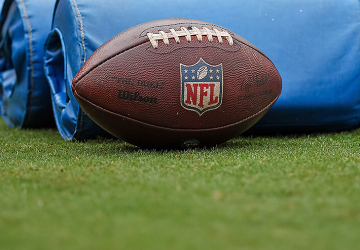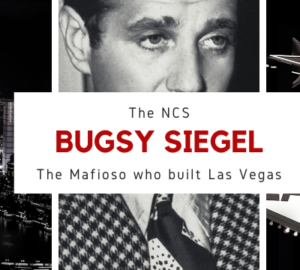
The city I live in, Portland Oregon, is a weird and wonderful place. Some call it the Amsterdam of North America, and I think that is accurate. This is a city full of politically correct, environmentally-friendly beardo-hipsters pedalling large, clownish bikes to their friends’ basement for rehearsal with their indie bands. I have been fortunate, in a town overflowing with musicians, to have secured a respectable amount of work as a sideman session player, and as a result have played in just about every theater, night club, dive bar, and coffee shop in town.
Early in 2014, I got a call to do a job in a venue I had never played before, called Al’s Den. Being new territory, I wanted to have time to acclimate to my surroundings before the gig (that’s musician speak for, “get a beer”), so I arrived early. After carefully navigating the long stairwell to this basement bar, I walked through the door and was immediately won over. This was not the typical hipster haunt, but a throwback to a time when Portland was a wide open town, with Shanghai tunnels, floating brothels, pinball machines that paid out, and illegal booze that flowed like rain. It was a classy joint that oozed a speak-easy vibe, all dark wood and brass, a welcome reprieve from the usual dingy black walls and punk aesthetic I had become accustomed to.
I ordered a pint of stout and took a seat in the back (of course) to wait for the rest of my fellow musicians to arrive. After taking a tug at my beer, I was struck by a picture on the wall that made me shake my head and smile. There was Al himself, sneering back at me from an old black and white portrait.

I have heard men in law enforcement speak of Carlo Gambino, explaining that if you were to walk into a café where he was sitting, you might never know he was there at all. He merely looked like someone’s grandfather enjoying a cup of espresso. And I have heard of guys like Gotti and Costello who couldn’t walk into a room without everybody taking notice. You might not know who they were, but you could tell they were somebody. The man in the photograph definitely fell into the latter category, and with one look at his mug I could tell that somehow, in some way, this guy was connected. As it turned out, I was right.
His name was Alfred F. Winter, and in the 30’s and 40’s he was Portland’s answer to Frank Costello. And just like Frank had 405 Lexington Ave, this basement bar was where Al ran the rackets in the Pacific Northwest. Born November 6, 1900, in Perham, Minnesota, his family moved west to Oregon where his father was appointed a Circuit Court judge by Govenor Julius Meier. Al would himself pass the Bar exam in 1925, and he practiced law for a short time. In the 1930’s he took over the regional race wire service and opened several successful gambling clubs in Portland, and Vancouver, Washington. The proprietor of a popular tiki club in downtown Portland, called the Pago Pago, he was apparently not as politically correct as we Portlanders are today (clearly evident by this menu from the bar!), but I doubt he received many complaints.

What he lacked in sensitivity for cultural diversity, he made up for in taste for good talent, and he brought in many up-and-coming entertainers of the era, most notably Sammy Davis Jr, who performed there frequently.
In 1945, Al set his sights on Nevada, but his stay was short lived. He returned to Oregon after the gambling establishment he acquired burnt to the ground under “suspicious” circumstances. Winter became a rising star in the West Coast rackets, and like any successful racketeer, he made some interesting friends. Through his dealings in the slots and racing, he became acquainted with the chesty little mobster, Mickey Cohen. Cohen, in turn introduced Al to Bugsy Siegel, and the two got on famously. They made plans to build a hunting lodge/casino on property owned by Al on Sauvie Island, just North of Portland.
Here is a rare picture of Al on his property either duck hunting, or burying something, or someone…

Legend has it Siegel came to town to meet with Al about their plans and it rained for his entire two-week stay. Like many before him, this was enough to send Bugsy packing in search of dryer prospects. Al followed Siegel to Las Vegas, this time armed with an allegiance of friends that included, Barry Goldwater, Gus Greenbaum, and Meyer Lansky. He would prove instrumental in the building of the Sahara for the modest sum of five and a half million dollars. Along with his partners, he was extremely successful, and also had interests in the Pioneer Club, Lucky Strike, and the Mint. The rest, as they say is history…

Mr. Winter would eventually return to the Pacific Northwest and retire with his wife, Lenore (the couple had no children). By this time he had made his fortune, and was content to leave the Portland rackets to a man named Big Jim Elkins. Some say it was Elkins who persuaded Al, (at gunpoint) to leave town in the first place; just think of Elkins as Winter’s Don Vitone. Big Jim was indeed a darker character, more interested in the growing illegal drug trade, but his is another story.
Though retired, Al would still occasionally appear in the headlines. In 1977, when a reporter investigating illegal activity in Nevada, was killed in a car bomb, Al’s name made it into the papers once again. He denied any connection to the bombing and no charges were ever filed.
“I left Nevada with an impeccable reputation.” He declared.
Al Winter passed away in 1984.
If you would like further reading on Al or Big Jim Elkins, I recommend the book Portland Confidential: Sex, Crime, and Corruption in the Rose City, by Phil Stanford.
I enjoyed discovering that Portland had such a colorful character in its history. Al was my kind of racketeer, more savvy than psycho. He was an old school type who had a touch of class mixed in with his underworld ways. I can imagine he had some stories to tell, and I would have loved to have had a chance to hear them over a pint, or two, down in Al’s Den.

Until next time, remember to always sit at the back…
- Frank Costello, A Novel by Ronald K Fried - June 6, 2023
- Las Vegas MobWorld Summit 2018 - June 6, 2018
- Frank DiMatteo Talks Gallo Brothers, Frank Costello & Mob Candy - January 18, 2018









